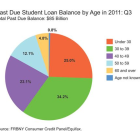
U.S. Supreme Court Questions If Juvenile Killers Should be Given Second Chance
|
The U.S. Supreme Court heard arguments today in the cases of two offenders, sentenced at a young age to die in prison, and may choose to further limit such sentences for minors. Kuntrell Jackson of Arkansas and Evan Miller of Alabama were both 14 years old when they were convicted of a homicide, and both were sentenced to life sentences without the possibility of parole (LWOP). For more on the background of their cases, click here. A juvenile's "deficits in maturity and judgment and decision-making are not crime specific," said Bryan Stevenson, who represented both offenders. "All children are encumbered by the same barriers." Stevenson argued that this was the inevitable conclusion to be drawn from the court’s other two recent cases on juvenile sentencing, Roper v Simmons and Graham v Florida.










